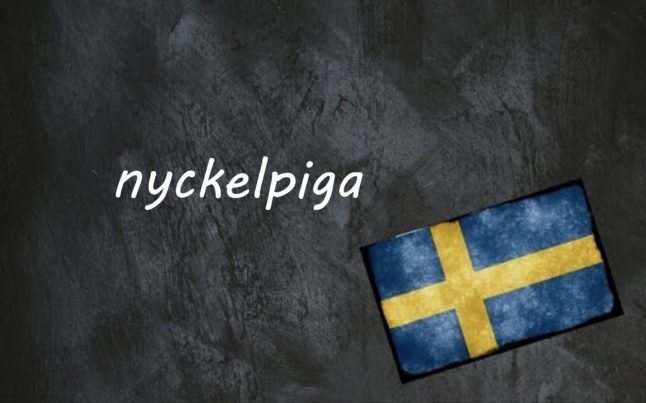Our Swedish word of the day – medlidande – was suggested by The Local’s Member Chris Parrish a few years ago, who wrote in an e-mail: “I spent time working with adults from all walks of life in Sweden and was warmed by the natural ability of many to feel compassion for others, regardless of nationality, religion or skin colour. I’m sure this is still present even though the far-right winds are blowing stronger.”
Medlidande consists of two parts, med which means ‘co-‘ or ‘with’ and lidande which means ‘the state of suffering’. Its closest English equivalent is ‘compassion’, the act of feeling kind-hearted sympathetic concern or sadness for another person who is suffering or has been affected by some kind of misfortune.
Today its meaning is figurative, but in old Swedish it could also literally mean that a person shared an affliction with someone else, or for example that a body part was affected by pain elsewhere in the body.
It can also be expressed as a verb form: jag lider med dig, I’m suffering with you, and indicates that you feel the other person’s pain, so strongly that you are even prepared to carry some of it in a philosophical sense.
Similarly, the word compassion (which is used in various forms in languages such as English, French and Italian) comes from the Latin com (‘with’, ‘together’) and pati (‘to suffer’, compare to for example ‘The Passion’ which in Christianity refers to the crucifixion and final period of the life of Jesus).
But because lidande is a modern word that – unlike ‘passion’ – is used to talk about suffering in everyday speech, medlidande perhaps comes across as more blunt and literal than its English equivalent.
As The Local has previously noted, the Swedish language is wonderfully literal.
“For me compassion doesn’t come close to the Swedish ‘suffering with’, but I suppose that is part of the joy of learning another language, examining and bringing the words to life,” Parrish told The Local.
Example sentences:
Jag känner stort medlidande med dig.
I feel great compassion for you.
Jag vill inte ha deras medlidande.
I don’t want their compassion.
Hon är väldigt medlidsam.
She is very compassionate.
Don’t miss any of our Swedish words and expressions of the day by downloading our new app (available on Apple and Android) and then selecting the Swedish Word of the Day in your Notification options via the User button.



 Please whitelist us to continue reading.
Please whitelist us to continue reading.
Member comments